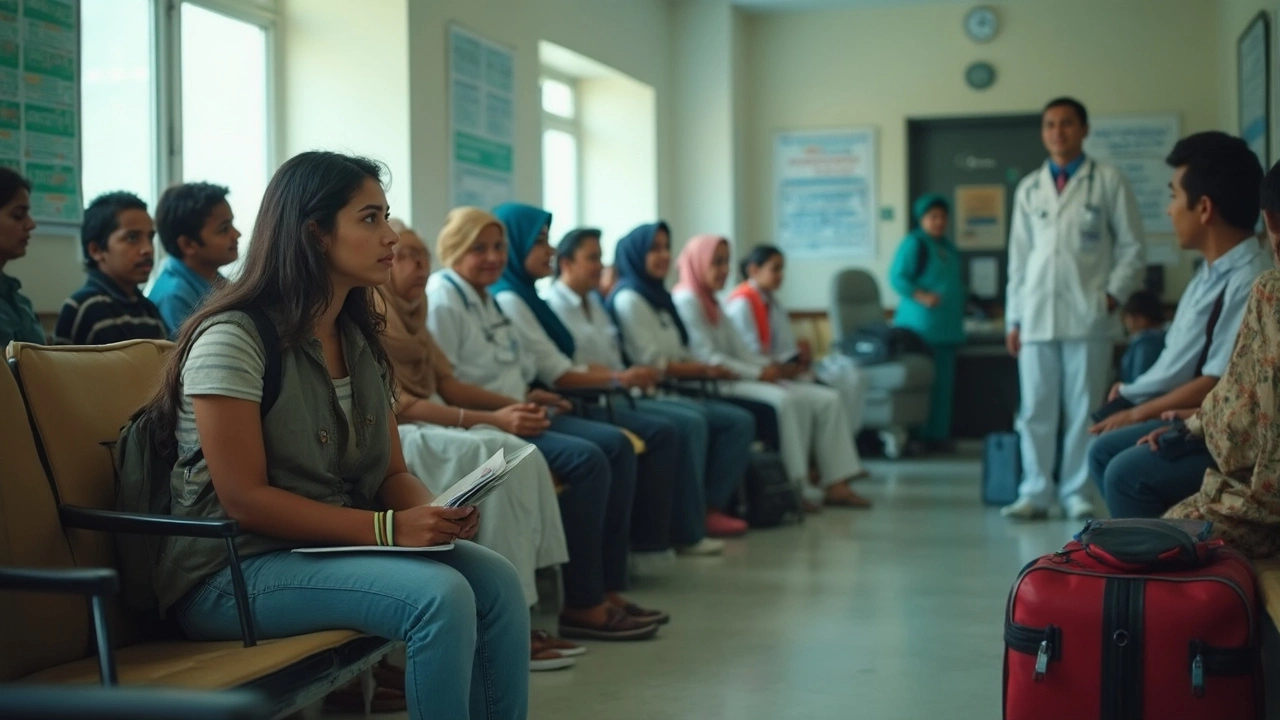Travel Health Tips: Stay Safe and Healthy on the Road
When planning any trip, the first thing to consider is travel health tips, practical advice that helps you avoid illness and injury while abroad. These tips blend medical knowledge with everyday habits, turning a potential health risk into a manageable part of your itinerary. Travel health tips encompass everything from pre‑departure vaccinations to what you pack in your carry‑on. They also tie into broader concerns like travel insurance and local disease threats. Below we’ll break down the core pieces you should know before you board.
Key Pillars of Travel Health Preparedness
One of the biggest pillars is vaccination, a set of immunizations tailored to the regions you’ll visit. Whether it’s hepatitis A for Southeast Asia or yellow fever for parts of Africa, getting the right shots months ahead can prevent serious illness. Another critical pillar is jet lag, the disruption of your circadian rhythm caused by crossing time zones. Simple strategies—like gradual sleep adjustments before departure and exposure to natural light upon arrival—can cut downtime and keep you alert for sightseeing. The third pillar, travel insurance, coverage that includes medical emergencies, evacuations, and repatriation, provides a safety net when unforeseen health issues arise.
Travel health tips also address disease‑specific prevention. For example, malaria prophylaxis is essential in many tropical destinations; taking the right medication before, during, and after your stay can be lifesaving. Food and water safety is another everyday concern—choose cooked foods, avoid raw salads in high‑risk areas, and use bottled or filtered water. By treating these actions as part of a single health plan, you reduce the chance of getting sick and maximize enjoyment of your trip.
Beyond the basics, there are extra layers that many travelers overlook. Carrying a compact first‑aid kit with band‑aids, antiseptic wipes, and any personal medications ensures you can handle minor cuts or allergies without scrambling for a pharmacy. Knowing how to spot early symptoms of common travel illnesses—like fever, diarrhea, or respiratory issues—lets you act quickly, whether that means self‑treating, consulting a local doctor, or using your insurance network. Understanding the local healthcare system, such as whether hospitals accept foreign insurance or require cash payment, also helps you navigate emergencies smoothly.
These components create a network of protection: vaccination reduces exposure, jet lag management keeps your immune system strong, insurance covers costs, and malaria prophylaxis blocks a deadly parasite. Together they illustrate the semantic triple "Travel health tips encompass vaccination, jet lag management, and malaria prevention" and "Travel health tips require proper planning and reliable resources". By seeing the connections, you can build a checklist that feels less like a burden and more like an empowering routine.
Practical implementation starts with a timeline. Six weeks before departure, schedule a visit to a travel clinic to discuss required vaccinations and obtain any prescriptions for malaria pills. Three weeks out, adjust your sleep schedule in small increments to match your destination’s time zone. One week prior, review your travel insurance policy, confirming coverage for medical evacuation and pre‑existing conditions. Then, a day before you leave, pack your first‑aid kit, enough medication for the entire trip, and a copy of your vaccination records.
When you arrive, keep hydration high, eat balanced meals, and continue light exposure to reset your internal clock. If you feel off, don’t ignore the signs—early treatment often prevents more serious complications. By applying these travel health tips, you’ll move from worry to confidence, ready to explore new cultures without the fear of getting sick.
Below you’ll find a curated collection of articles that dive deeper into each of these topics, offering detailed guidelines, personal stories, and expert advice to help you fine‑tune your travel health strategy.

What Happens If You Get Sick in Another Country? Medical Tourism Essentials
Ever wondered what happens if you get sick while traveling in another country? This guide covers everything from finding care and navigating language barriers to dealing with costs and unexpected health emergencies abroad. You’ll get real tips for handling minor and major health issues, and learn how medical tourism can change your options overseas. Expect direct advice and practical steps if things go sideways. Don’t wait until you’re in a hospital bed in Bali to think about this stuff.
read more



